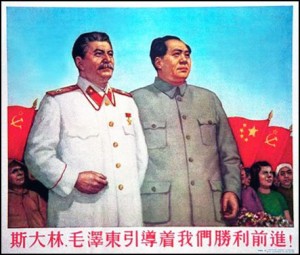
International economic sanctions, and particularly restrictions banning credits and loans to state-owned Russian banks, imposed on Russia following the annexation of Crimea and the Kremlin’s support for pro-Russian separatists in south-eastern Ukraine, force the Kremlin to seek out alternative sources of financing in those countries that did not join the Western sanctions. First and foremost, the current Russian regime counts on receiving an advance payment from China for future gas supplies. The warm friendship that suddenly flared between Russia and its eastern neighbor brings to mind a Soviet propaganda slogan from the 1950s: “Russians and Chinese are brothers forever.” On May 21, 2014, after several years of, as it sometimes seemed, never-ending and fruitless negotiations, Russia and China signed a 30-year gas agreement. Despite the fact that the Russian media, citing sources in the Gazprom management and the presidential press service, called the deal extremely beneficial for Russia, there is yet no question of mutually advantageous brotherhood. However, there is reason to suspect that China might make a fool of its Russian brother.
As is well-known, gas supply negotiations with China have lasted for almost 10 years. The gas price under discussion fluctuated between $380 and $590 per thousand cubic meters, and the volume of supply ranged from 38 to 68 billion cubic meters a year. Despite the pompous ceremony, at which Russian President Vladimir Putin and China’s leader, Xi Jinping, oversaw the signing of the gas contract, some important details of the agreement are wrapped up in mystery. Gazprom CEO Alexey Miller refused to name the price for gas deliveries to China, citing it as a corporate secret. However, according to expert’s calculations, China will be paying $350 per thousand cubic meters of gas, which is well under the $360-$380 being paid by Russia’s Western European customers. Such a discount could be acceptable if there were no need to invest in a large-scale construction of the Power of Siberia pipeline to transport gas from Russia to China. The 4,000-kilometer major pipeline from Yakutiya to the Primorye region with the annual throughput of 61 billion cubic meters of gas can become the second Baikal-Amur Mainline, that is an expensive long term construction project with questionable economic efficiency.

Russia plans to invest $55 billion in the “construction of the century,” whereas the Chinese input will amount to around $20 billion. However, Beijing does not seem eager to make an advance payment, probably, because it wants to make sure that this money will be spent on goods and services from China. Experts also note that the May contract is pegged to the price of oil that has decreased significantly, and, consequently, its total value has dropped as well and reached $300 billion. In this context, it is clear that Russia will not particularly benefit from supplying gas to China. Just as it happened in the 1950s, nothing will come out of this brotherly help while fools and roads (or in this case pipelines) will get the blame.





